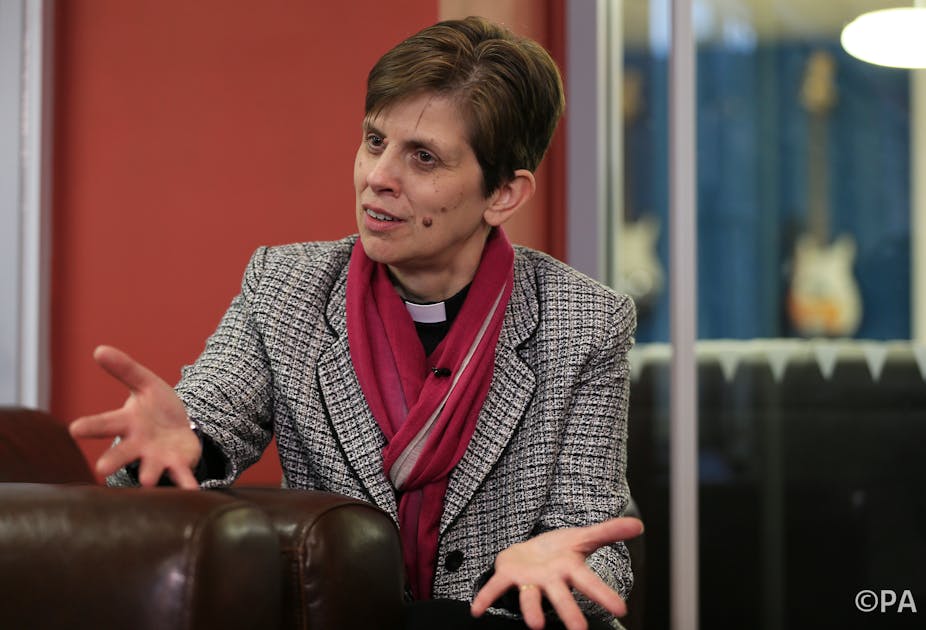As the first woman bishop prepares for her consecration on January 26, a row has erupted over another high-profile consecration scheduled for the following week. Libby Lane will become bishop of Stockport in the Diocese of Chester in a ceremony that will see the Church of England becoming one of the last established protestant churches to allow women into every aspect of leadership.
It is a momentous event for the Church. Unfortunately, Philip North, the second figure in this tale of two bishops, doesn’t quite see it that way.
North, who will become bishop of Burnley on February 2, is from the traditionalist stable and is against allowing women bishops. North seems to have proved himself as a grassroots worker but his views on women in leadership positions and the arrangements apparently being made for his consecration have initiated fresh debate about the compromises made by the church authorities as it gives top roles to women. For one commentator it is “one step forward and two giant leap backwards for the English episcopate”.
There were reports that an internal circular was sent to all the bishops in December in preparation for these two consecrations. It told the bishops participating in the consecration of Lane that they should exercise “gracious restraint” from laying on hands during the consecration of North the following week.
This, for many, revived the long held idea of “taint”. Those bishops who laid hands on Lane should not also touch North in his ceremony as they might be considered tainted by Lane. According to the provisions made by the General Synod, anyone who ordains women as priests or bishops is polluted or sullied as a result and is therefore “unacceptable” to those opposed.
Following outcry, Sentamu issued a letter in the hope of calming concern. But far from answering to allegations of discrimination that had been levelled at him, Sentamu gave convoluted explanations that simply raised more questions. In his letter, he claimed that he himself has ordained both women priests and male traditionalist bishops. That, he seems to think, would put paid to the suggestion that traditionalist bishops like North would object to his tainted hands.
But if that were the case, you have to wonder why he made the extraordinary request for “gracious restraint” in his letter in the first place and, indeed, why Sentamu himself [will not be laying hands on North](Yet he himself will not lay hands on North.

Although Sentamu denies there is a theology of “taint” behind his decision, he fails to explain why restraint – be it gracious or not – was even considered by a progressive bishop who fought for the legislation to allow women in to the episcopate. If it is not informed by a theology of taint, what theology is it?
In this case, the request for “gracious restraint” sounds a lot like a new form of untouchability. It seems that the possibility of having women in the highest leadership positions came at the expense of limiting that role.
It took more than a century of concerted campaigning for equality in the church to bring in the legislation that led to Lane’s nomination in 2014. The change came two decades after the first ordination of women priests.
Lane and other women may be able to become bishops, but it seems only in the eyes of some Anglicans. This incident evokes memories of deep-seated prejudice that excludes certain sections of the society, as in the socio-religious caste system. Are women bishops, and those who lay hands on them during consecration, the new untouchables?
Inclusion at the expense of equity seems suspicious. Laying on of hands is a significant liturgical and theological practice within Anglican worship. Requesting bishops to refrain from doing it amounts to blatant discrimination, even if the archbishop claims that it is only an act of prayer and not politics.
Some argue that the move is an act that institutionalises misogyny. If the Church of England really values its new woman bishops, why would it still allow for this divisive ideology to be recognised? In a secular setting, no institution could get away with such a move.
Instead of moving forward as a church, these safety valve mechanisms are ways by which archaic misogynistic views are perpetuated – even as the archbishops tout their plans for a complete reformation of the church.
All things considered though, we should not let this tainted politicking overshadow the significant step of women being embraced as leaders in the church.

